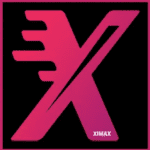
카지노솔루션
All-In-One Service
카지노솔루션 전문 UKK 솔루션은 다양한 종류의 게임 솔루션과 API를 제공하는 전문 기업입니다. 카지노솔루션, 토토솔루션, 슬롯솔루션 등을 개발하고 제공하며, 이에 더해 에볼루션카지노를 비롯한 다양한 게임사의 공식 카지노 API도 함께 제공합니다. 이를 통해 국내외 카지노사이트에서 필요로 하는 다양한 서비스를 제공하고 있습니다. 또한, 우리의 카지노알본사 최상위 코드를 활용하여 카지노알분양, 카지노알판매, 카지노알공급 서비스를 가장 우수한 조건으로 제공하고 있습니다. 모든 API는 해당 본사로부터 직접 제공되는 공식적인 카지노API로, 카지노사이트 운영에 필요한 모든 업무를 완벽하게 지원하고 있습니다.
All-In-One SERVICES
UKK 솔루션은 오랜 경험과 다양한 프로젝트를 통해 얻은 노하우를 기반으로 카지노솔루션, 토토솔루션, 슬롯솔루션 분야에서 전문성을 발휘하는 기업입니다. 고객의 요구에 신속하고 정확하게 대응하기 위해 최고 수준의 기술을 활용하며, 대량 데이터 처리에도 효율적인 성능을 유지합니다. 우리는 항상 최신 기술을 적용하여 카지노, 토지노, 슬롯, 파워볼 등 다양한 솔루션을 제공하고 있습니다.
우리의 서비스는 솔루션 제작 및 분양 임대 뿐만 아니라 카지노알과 에볼루션알을 국내 최고 요율로 제공하는 알본사로서도 활동합니다. UKK 솔루션에서는 에볼루션카지노 정식 카지노API를 제공하며, 이는 deposit 없이 통합 분리 형태로 알을 제공하는 특징을 가지고 있습니다.






사용자 니즈분석
오랜기간 동안 메이저 운영 및 개발 경험으로 축적된 경험과 노하우로 유저들이 무엇을 원하는지, 그리고 카지노솔루션, 토토솔루션, 슬롯솔루션 관리자 기능에는 어떤것들이 필요한지에 대해 철저하게 분석하고 솔루션에 적용하고 있습니다.

창의적인 디자인
자체 디자인팀이 제작한 수십종의 다양한 카지노솔루션, 토토솔루션, 슬롯솔루션 디자인 샘플을 제공하여 귀사의 선택의 폭을 넓혀드리고 있으며 귀사의 컨셉에 최적화된 디자인을 제공하고 있습니다.

보안 및 유지관리
저희는 다양한 유형의 사이버 공격으로부터 웹사이트를 신속하고 효과적으로 보호하는 데 주력하고 있습니다. DDoS 공격부터 멀티벡터 공격, 어플리케이션 공격(Slowloris, RUDY 등)까지 모든 공격 유형에 대해 대처하고 있으며, 이를 위해 IDS(침입 탐지 시스템)과 IPS(침입 차단 시스템)을 기본으로 탑재하여 카지노솔루션, 토토솔루션, 슬롯솔루션 에 대한 해킹을 방어합니다.

업데이트
카지노솔루션, 토토솔루션, 슬롯솔루션 전문 UKK 솔루션은 국내외 최고의 엔지니어들이 항상 빠르고 지속적인 업데이트를 통해 최신 기술과 트렌드에 부합하는 최고 수준의 카지노 솔루션을 제공하고 있습니다. 더불어, 안정적인 서버 운영과 철저한 보안 대책을 마련하여 고객들의 안전한 이용을 보장하고 있습니다.

카지노알본사
저희는 카지노 알본사 최상위 코드를 활용하여 국내에서 가장 우수한 요율로 카지노 알 분양, 카지노 알 판매, 카지노 알 공급 서비스를 제공하고 있습니다. 안전성을 최우선으로 하며 연동 테스트를 철저히 거친 카지노API 만을 안전하게 연동하여 알 판매를 진행하고 있습니다. 안심하고 이용하실 수 있도록 최선을 다하겠습니다.

에볼루션 정식 API
저희 UKK 솔루션은 에볼루션카지노 API를 비롯하여 다양한 카지노솔루션 및 카지노API, 카지노알 을 전문적으로 제공하는 기업입니다. 공식적으로 허가 받은 카지노 라이센스를 소유하고 있어 안전하고 믿을 수 있는 서비스를 제공하고 있습니다. 더불어, 해킹, 디도스 공격 등으로부터 고객의 정보와 자산을 보호하기 위해 다양한 보안 시스템을 도입하여 안전한 게임 환경을 보장하고 있습니다.
에볼루션 알 공식 요율 안내
에볼루션 및 프라그마틱(그 외 슬롯)을 통합한 요율이 적용됩니다. 10억 원을 초과하여 충전하실 경우, 결제 담당자에게 말씀해주시면 확인 후 할인 요율을 적용해 드리겠습니다. 알 값에 대한 협의는 정중히 거절합니다.
10억 이하
통합 8.5% /
4.5%(에볼루션)
10억 초과 30억 이하
통합 8% /
4%(에볼루션)
30억 초과시
미팅 후 협의
15
Year Experience
23
배출 메이저사
2008
회사연혁
192
지원가능 게임 수
63
GMS 파트너사
카지노솔루션 All-In-One Service
카지노솔루션 전문 기업인 UKK 솔루션은 카지노사이트, 파워볼사이트, 토토사이트, 슬롯사이트 등 다양한 온라인 게임 솔루션을 제작하고 분양하는 서비스를 제공하는데 그치지 않습니다. 우리는 에볼루션의 정식 카지노API를 국내 최고의 요율로 제공하며, 에볼루션 알도 다양하게 제공하고 있습니다. 또한 카지노알과 다양한 종류의 카지노알도 제공합니다. 우리는 카지노솔루션과 스포츠 솔루션을 통합하여 전체적인 서비스를 제공하는 토탈 업체입니다.
귀사의 카지노사이트 또는 토토사이트 오픈을 위해 필요한 모든 서비스를 우리 UKK 솔루션에서 제공하고 있습니다. 모든 웹사이트는 완벽한 보안 조치가 적용된 해외 IDC 서버 센터에서 안전하게 운영됩니다. 또한 디도스 공격 등을 방어하기 위해 아너링크와 같은 방어 메커니즘을 설정하고 있습니다.
각각의 카지노솔루션, 토토솔루션, 슬롯솔루션에 대한 문의는 전문 상담요원들이 담당하고 있습니다. 이들 상담 요원들은 플랫폼과 사이트 제작에 대한 깊은 이해도를 가지고 있어서 1:1 맞춤 서비스를 제공할 수 있습니다. 우리는 귀사의 사업 성장을 적극적으로 협조하며 진실된 사업 파트너로서의 역할을 수행할 것을 약속드립니다.
에볼루션카지노 정식API
에볼루션카지노 정식API 전문 기업인 UKK 솔루션은 다양한 정식 카지노 라이센스를 보유하고 있습니다. 저희는 고객들의 경제적 이익을 극대화하기 위해 솔루션 영역에서 도움을 드리고 있습니다. 더불어 해킹 및 디도스 공격과 같은 보안 이슈에 대비하여 추가적인 보안 시스템을 통합하여, 빠른 대응 및 게임 머니 이동에 있어서 불편함이 없도록 지원하고 있습니다.
카지노솔루션 개발 분야의 선두주자인 UKK 솔루션의 에볼루션카지노 정식API는 국내에서 유일한 deposit 없는 카지노 사이트 제작 전문 플랫폼입니다. 저희는 효율성을 높이고 비용을 절감하며, 동시에 높은 퀄리티의 디자인을 제공합니다. 알본사를 통한 통합 분리 형태의 알 제공도 가능합니다.
우리는 수십 개의 정식 계약된 라이브 카지노와 슬롯 게임을 제공하며, 게임의 다양성과 품질을 주기적으로 업데이트하며 파싱 게임은 채택하지 않습니다. API 문서와 자체 서버 구축이 어려우시더라도 전용 서버로 사이트를 쉽고 빠르게 제작하여 연동할 수 있으며, 수백 개 이상의 라이브 카지노와 슬롯 게임을 하나의 API로 통합하여 이용 가능합니다. 하나의 통합된 지갑(월넷, 게임머니)을 통해 간편하게 모든 게임을 이용할 수 있습니다.
저희 카지노솔루션 전문UKK 솔루션은 합리적인 가격으로 최상의 카지노 알판매 서비스를 제공합니다. 또한 카지노 API를 통해 직접 카지노/슬롯 사이트를 제작하는 것도 가능합니다. 저희는 최상의 서비스와 합리적인 가격으로 고객님의 사업 성장을 전적으로 지원할 것을 약속드립니다.
카지노알본사 국내 최고의 요율로 알공급
카지노솔루션 전문 기업인 UKK 솔루션은 카지노 및 슬롯 게임 회사와의 정식 라이센싱 계약을 통해 API 연동 및 정품 제품을 제공합니다. 우리는 항상 최선을 다하여 고객의 만족도를 높이고 더 나은 서비스를 제공하기 위해 노력하고 있습니다.
Simless Wallet 방식을 도입하여, 머니 전환이 필요 없이 모든 게임을 빠르고 편리하게 이용할 수 있는 API를 제공합니다. 에볼루션 게이밍을 비롯한 다양한 플랫폼의 게임을 다루며, 추가로 언급하지 않은 다양한 카지노 게임도 가능합니다.
우리는 카지노솔루션 분야의 전문 기업으로서 현지 합법적인 라이센스를 보유하고 있어 업계 최상의 라이브 카지노 및 스포츠 배팅 플랫폼과 연동이 가능합니다. 복잡한 계약 절차 없이도 빠르고 간편한 계약이 가능하며, 저희와 협업 중인 다양한 온라인 스포츠 배팅 업체 및 온라인 카지노도 현지 합법 라이센스를 활용하여 안전하게 운영할 수 있습니다. 파트너쉽을 원하시는 분들은 언제든지 연락해 주시면, 쉽고 신속하게 최상의 온라인 배팅 사이트를 개설해 드릴 것입니다.
카지노솔루션 , 토토솔루션 개발 및 임대
우리는 카지노솔루션과 함께 국내 최고의 토토솔루션 개발 서비스를 제공하고 있습니다. 최신 원쏘스 솔루션을 활용하여 안정적이고 효율적인 토토 솔루션을 제공하고 있습니다. 다양한 프로그램 토토 업체가 시장에서 존재하지만, 모든 요구사항을 충족시키는 업체를 찾는 것은 어려운 일입니다. 우리는 고객의 요구를 최대한 충족시키기 위해 다양한 서비스와 최신 개발 기술을 제공하고 있습니다.
저희가 제공하는 토토솔루션 개발 서비스의 주요 장점은 다음과 같습니다.
24시간 고객 지원: 빠른 대응을 위해 메신저와 유선 상담을 지원합니다.
안전한 IDC 서버 및 아너링크 클라우드: 일본 IDC 서버를 기반으로 해킹 방지 및 안전한 운영을 제공합니다.
자동화된 경기 등록 및 결과 시스템: 배당, 경기 결과 및 등록이 자동화되어 비용을 효율적으로 관리할 수 있습니다.
모바일 최적화: 모바일에서도 간편한 접근을 위해 별도의 모바일 페이지를 제공하지 않아도 됩니다.
1인 관리자 체제: 단 한 명의 관리자로 운영이 가능한 어드민 및 관리 시스템을 제공합니다.
카지노솔루션 UKK 솔루션은 지속적인 비즈니스 파트너십을 추구하며, 사이트 관련 포트폴리오와 테스트 데모 버전을 365일 내내 열람 가능하도록 합니다. 토토솔루션에 관한 문의는 언제든지 환영하며, 안정적인 수익과 보안을 바탕으로 한 토토솔루션을 찾고 계시다면, 저희와 함께하시기 바랍니다.
우리는 스포츠 사이트를 시작하려는 분들이나 토토솔루션을 구축하고자 하는 분들을 위해 수년간의 기술과 안정성을 기반으로 토토솔루션을 제공합니다. 토토솔루션 기능이 이미 평준화되어 있는 상황에서, 신뢰할 수 있는 파트너와의 협력과 원활한 소통이 중요합니다. 그래서 우리는 합리적인 가격과 함께 성공적인 결과를 달성하고자 노력하고 있습니다.
24시간 텔레그램 문의 : @UKK79
Copyright © 2010 UKK – Solution All rights reserved.